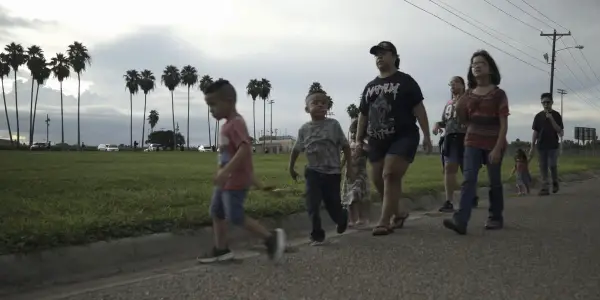Tribeca 2020: THE STATE OF TEXAS VS. MELISSA

Stephanie Archer is 39 year old film fanatic living in…
Throughout the history of our legal system, cases of child abuse and child homicide are not uncommon. Susan Smith, Andrea Yates, Diane Downs and Casey Anthony, just to name a few, were each accused of murder, many claiming themselves innocent, many with a litany of evidence against them. With everything under the microscope, the smallest detail could bring gavel crashing down.
Yet, when it comes to justice, sometimes the wrong kind is served. Sometimes, there is more than meets the eye – more than was investigated. The State of Texas vs. Melissa, from director Sabrina Van Tassel, examines the perspective of presumed guilt and legal bias, and how each can have devastating consequences. Innocence is a concept of the justice system that is supposed to be protected – “innocent until proven guilty”.
Yet for some, they are not allowed this mantra, the moment an idea forms of their guilt, it is followed through to the end at all cost. For Melissa Lucio, the untimely death of her daughter Mariah brought the justice system crashing down on her – a question of innocence or guilt quickly resolved, but never investigated. The State of Texas vs. Melissa gives her that chance.
A Failed investigation
The State of Texas vs. Melissa opens with the video of Melissa’s interrogation, the officer aggressively asking her to recreate how she beat her child. His questions come like rapid-fire, giving little time to process before the next question is asked. There is a feeling of harassment and hate, disdain and judgment encompassing every word that leaves his mouth. As Melissa answers his questions, reenacts on command, he becomes more repetitive, almost forcing her into answers and behaving towards a predetermined manner. Hours later, Melissa is charged with homicide.
But the question is, did she do it?

Margaret Schmucker, Melissa’s appellate lawyer doesn’t think so – and neither do her children. She is the mother of 14 children and has been on death row for 11 years. Convicted of her daughter’s murder, there is a feeling at the beginning of The State of Texas vs. Melissa that maybe she did murder her daughter. There are tidbits of information revealed and laced throughout that give reason and explanation as to why she could be behind her daughter’s murder. Though in a cleaver cinematic fashion, as you continue on, you discover these are not tidbits of information, rather pieces to a puzzle – a puzzle that no one took the time to figure out.
As the documentary gives time to members of her family, key experts, and Melissa herself, she gets her own cinematic defense, where a bit of logical digging, understanding and piecing together the puzzle reveals a true picture of sibling rivalry and the sacrificial offering of a mother. While that sounds like an honorable discovery, one that could lead to her exoneration, it also reveals the flaws in a justice system and the corruption for the sake of public relations and campaigning.
A Failed trial
As you begin to come full circle in The State of Texas vs. Melissa, viewers will come to an understanding there are two areas in the justice system that severely failed Melissa – the lack of a proper investigation and poor legal representation. Each being detrimental, yet the latter delivering the fatal blow to her case. Peter Gillman, Melissa’s defense attorney, is discovered to not only have uncovered a plausible explanation for what really happened to Mariah, but seemingly buried it from acknowledgment, ordering anyone who knew about it on his team to remain quiet. This is also the same man who, not only didn’t file a motion to have her coerced confession thrown out, after talking to the district attorney’s office, talked her into taking a long sentence as a “deal”.

When a private investigator confronts Gillman, years later, he refuses to discuss the case with her, claiming that he doesn’t remember when pressed. While Gillman is given the chance to provide his own interview for the documentary, there is a sleazy nature that has already been crafted around him – especially as it has already been revealed that after Melissa’s prosecution, he was offered a job in the district attorney’s office. But this framework that is laid out, giving a highly judgmental viewpoint of Gillman, mimics the one that was given to Melissa, making for an interesting comparison for the creation of presumptions and early indications of guilt.
Conclusion
The State of Texas vs. Melissa unfolds slowly, meticulously, and with intent. Every question you find arising will be answered – but in time. You will feel as though no time has passed as you witness a cinematic investigation unfold, only to discover that it is almost over. The State of Texas vs. Melissa finds its strength in its subject and her story, but also in the chance it gives to all involved to have their voices heard and their perspectives examined – a chance many were never given when it mattered most.
Find out more about The State vs. Melissa here.
Does content like this matter to you?
Become a Member and support film journalism. Unlock access to all of Film Inquiry`s great articles. Join a community of like-minded readers who are passionate about cinema - get access to our private members Network, give back to independent filmmakers, and more.













